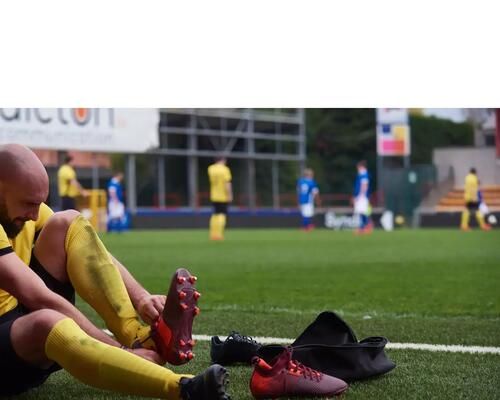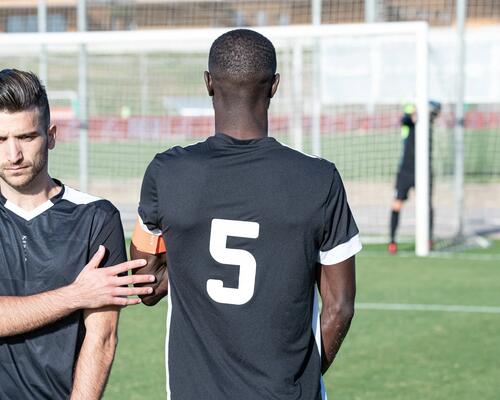Vision - survey the scene
The most important skill to acquire: vision. “Head up!” is one of the most frequently heard exhortations that you'll hear at the club's training sessions, and for good reason - it rarely comes naturally. Very often, you feel the need to look at the ball, as if to reassure yourself that it's still at your feet, etc.
There's only one solution: keep training, practise & continue to practise, until you no longer have the desire to look at your feet. Slowly but surely you'll find it works and, when it does, you'll wonder why you didn't do it before!
The result of this change in your habits is simple, but very effective: the scope of your possibilities for action is widened considerably, which means you get one step ahead of your opponents.






